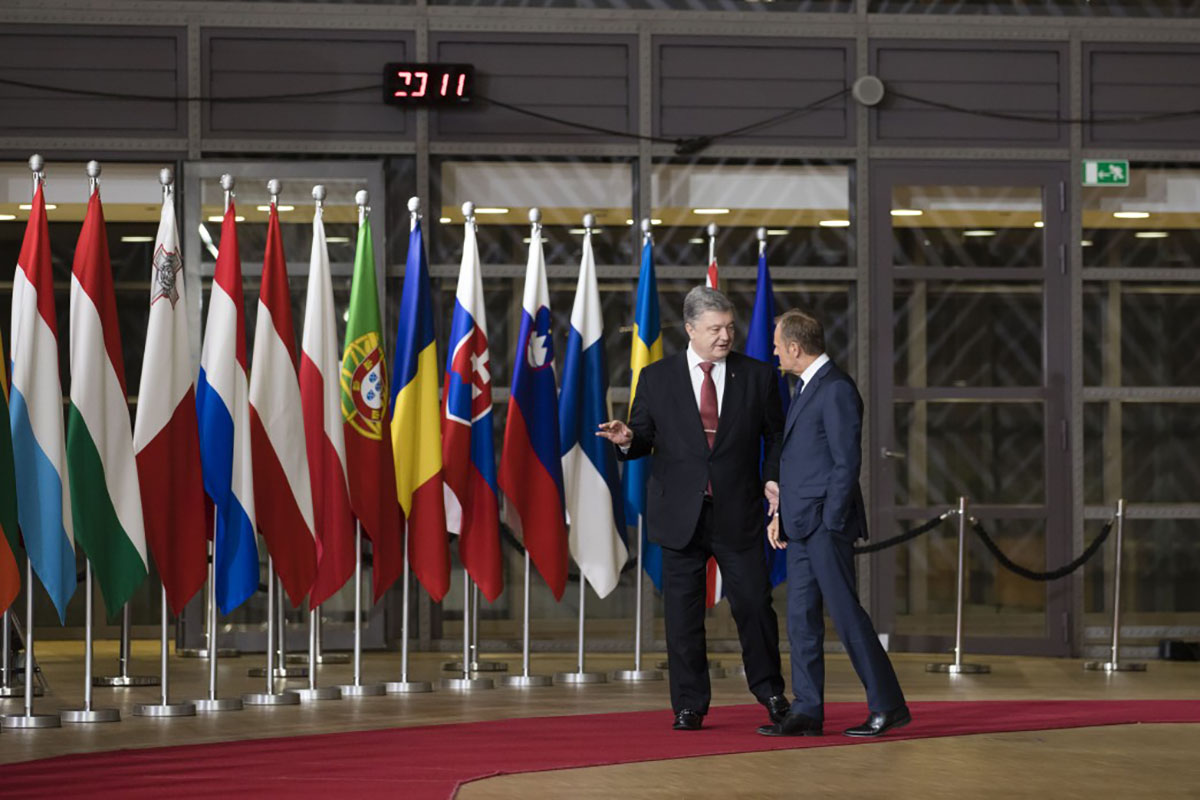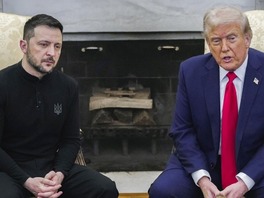The main problem of foreign policy of the last five years was that it preserved the weakness of Ukraine. There were many smaller mistakes. All this led to the fact that the country today is at an impasse of confrontation with Russia, the "gray zone" of security in Eastern Europe, in the network of problems in bilateral relations – and the declared European integration occurs only at the level of slogans. Ukraine's position is weakening both in bilateral relations and at the regional level.
Foreign policy was devoid of a strategic vision based on an adequate assessment of reality. The declared goals could not be achieved at the same time, it was not possible to concentrate resources – as a result, we did not become closer neither to EU, nor to NATO membership, nor to the return of Crimea, nor to the resolution of the conflict in Donbass. But we got the aggravation of relations with Western neighbors, the disappointment of Europeans and Americans. Five years later, Ukraine is without allies and without a clear strategy of participation in the protracted asymmetric conflict with Russia.
The quintessence of Ukraine's European and Euro-Atlantic policy was the change in the Constitution – fully reflecting the declarative nature of the European choice. The world is changeable. The processes in the EU and NATO are dynamic, and the picture of the benefits that are created for members of both organizations is constantly changing. Instead of taking these changes into account, we are pursuing a policy towards NATO and the EU that dates back to the day before yesterday based on endless assurances of intent.
Joining NATO would be an ideal solution for Ukraine as to security problems – but this is impossible without turning into a normal democracy and minimizing the confrontation with Russia. The demonstration of determination to enter without these steps, and even with simultaneous deterioration of relations with Poland and Hungary, looks like a deliberate manipulation of the Euro-Atlantic theme. This has happened in the history of Ukraine.
There is no more content in our European policy. The signing of the Association agreement with the EU was a landmark event – the result of years of negotiations and dramatic events on Maidan. Instead of using its potential, we have built relations with Brussels based on the requirements and we declare that Ukraine is a model of European values. A poor, corrupt country without democratic institutions, trying to teach Europe life – can such a policy lead to success?
We have not solved the key task – we have not defined the long-term parameters of policy towards Russia. Although almost everything else depended on it. The set of situational solutions – the use of belligerent rhetoric and the growth of trade, sanctions and cooperation, court cases and the extension of the life of a Large Treaty till the last moment were called "hybrid war", and behind this term we hid the lack of a meaningful approach. This absence resulted in Minsk agreements and Normandy format. The first weakened the negotiating position of Ukraine for a long time and gave Russia a strong trump card in the dialogue with the West. The second one proved to be an unsuccessful implementation of the correct solution. Not being able to break this deadlock by making our policy towards Russia as predictable and inflexible as possible, we actually reduced it to the issue of sanctions and became a hostage of this regime. Sanction is an inefficient and complex, expensive tool in today's world – we have turned them into a measure of success, and now we have to pay dearly to our partners for them. The sanctions do not change the behavior of Russia in relation to us. They weaken Moscow long-term, but we do not benefit from them, only its global competitors do.
From this point of view, we have become a fairly inexpensive tool for anyone who wants to play against Russia. No security assurances, no NATO or bilateral treaties – just small money and symbolic arms transfers. We also failed to use the Budapest Memorandum, under which no one should do anything special to us, we also failed in the context of the collapse of the non – proliferation regime.
To top it all off, we managed to worsen relations with Hungary and Poland. Issues of language and history, for all their importance, should not jeopardize national security, escalating instability on the borders of Ukraine and depriving us of valuable votes in European institutions.
External conditions affecting Ukraine, during all these years required creative solutions, initiative and effort. Foreign policy has not demonstrated any of this. The MFA continued to play a passive role without becoming a think tank or at least an effective performer. The reform of the diplomatic service was delayed for years, eventually limiting itself to cosmetic changes that did not affect the main weakness – the process of foreign policy decision-making. The country remained for years without ambassadors in dozens of countries, without breakthrough plans and ideas and with a complete behind-the-scenes foreign policy.
This foreign policy itself remained largely façade one. Speeches at international forums, demarches in international organizations, negotiations and visits looked like a large-scale work, but did not bring results. Words about the wide pro-Ukrainian coalition remain a myth, and we still have little reason to count on anyone's help. The relative stability and semi-frozen state of the conflict in the Donbas remain as long as it is beneficial to Russia.
To change this state of affairs and breathe initiative into one of the key areas of public policy is not as easy task as it may seem. If it is not overcome, the conservation of inefficiency will continue, and the country will get stuck in the "gray zone" for a few more years.






